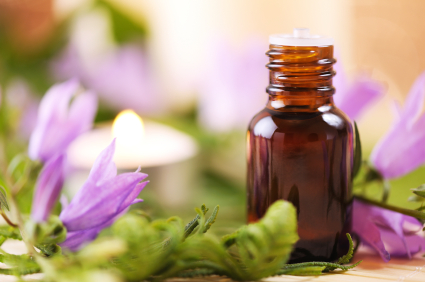 Scents? Or Sensibility? Can aromatherapy boost the psychological benefits of therapeutic massage?
Scents? Or Sensibility? Can aromatherapy boost the psychological benefits of therapeutic massage?
I am a huge proponent of aromatherapy also though I have never been convinced one way or the other of its medicinal value. I simply like good scents; I find that they can energize or relax, boost endorphins or calm nerves. And yet, one thing that I did not realize is that aromatherapy massage is the most widely used complementary therapy in nursing practice — legitimized largely by its role in holistic nursing — and is recognized by the US State Boards of Nursing. There are data that suggest that aromatherapy may help improve anxiety, depression and mood swings, which is interesting since mood swings and depression are common among some women going through menopause. And, massage has been reported to be helpful in ameliorating certain symptoms, including insomnia.
So, what exactly is aromatherapy?
Aromatherapy refers to the use of essential oils, extracts if you will, that are distilled from roots, seeds, leaves or blossoms of plants to promote physical healing or enhance overall wellbeing. The practice has been used for roughly 6,000 for therapeutic purposes. While experts are not certain how aromatherapy works, some believe that it works through smell receptors in the nose that communicate directly with the brain.
Currently, researchers are reporting that when added to therapeutic massage in menopausal women, it may help to reduce the burden of psychological symptoms. In fact, when they compared the effects of twice weekly, 30 minute aromatherapy massage sessions to the same type of massage but an odorless oil and to no intervention at all, that is exactly what they found.
For the purpose of this four week study, researchers used an oil that consisted of safely diluted proportions (4:2:2:1 ratio, respectively) of:
- lavender — known for its sedative properties and ability to promote calm
- geranium — commonly used for menopause
- rose — useful for reducing stress and targeting menopause and related hormonal issues
- rosemary — known to improve circulation and exhaustion
Evening primrose oil — an oil that is often used as a carrier (pressed rather than distilled) oil to enhance the effects of the essential oils.
A certified midwife (who also held a massage and aromatherapy certification) conducted the massages at the same time daily; oil was applied with hands using clockwise circular movements with light pressure and the participants lay face down. And, the researchers used two scientific measures both at the study’s start and end to evaluation depressed mood, irritability, anxiety, physical/mental exhaustion and impairments in memory and concentration. To reduce bias, face to face interviews were carried out rather than relying on recall and self administered questionnaire.
The findings? Both aromatherapy therapeutic massage and regular therapeutic massage appeared to have positive effects on psychological symptoms. However, somewhat higher average reductions in severity scores were seen in women who had the aromatherapy massage. And compared to women who didn’t receive any treatment whatsoever, aromatherapy massage had significant effects on depression, irritability, anxiety and physical and mental exhaustion.
It’s virtually impossible to tease out the emotional benefits alone of having massage or aromatherapy massage; being touched warmly and gently tends to boost overall wellbeing. However, from a scientific standpoint, aromatherapy massage therapy in a controlled environment appears to boost the effects of regular massage.
Yesterday, I put this theory to test. I felt a heck of a lot better but not necessarily due to the scents. I’m opting for sensibility on this one. Meanwhile, what are your thoughts on aromatherapy?






